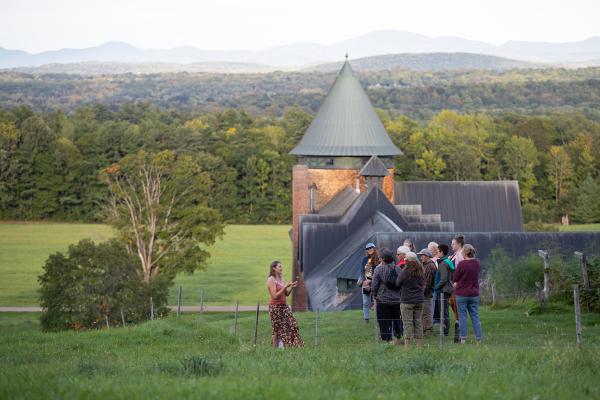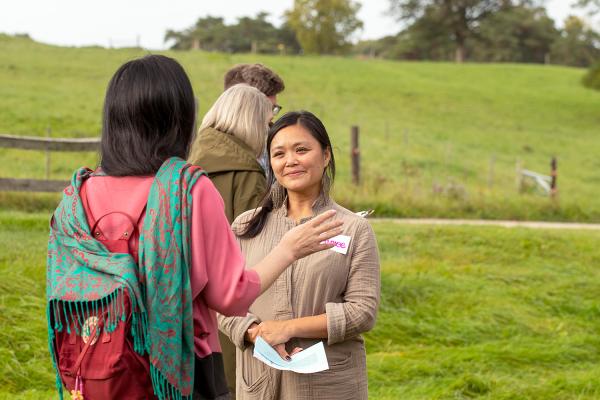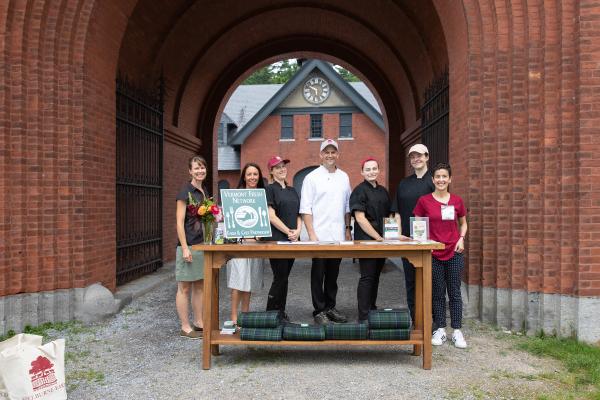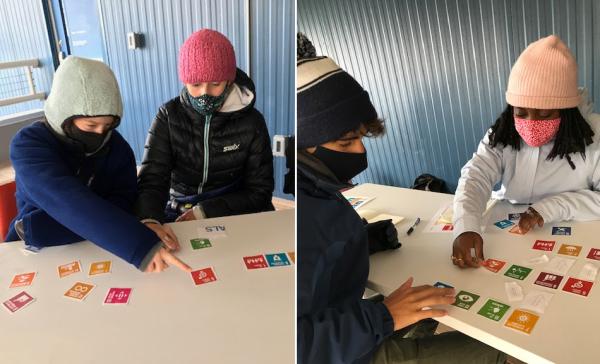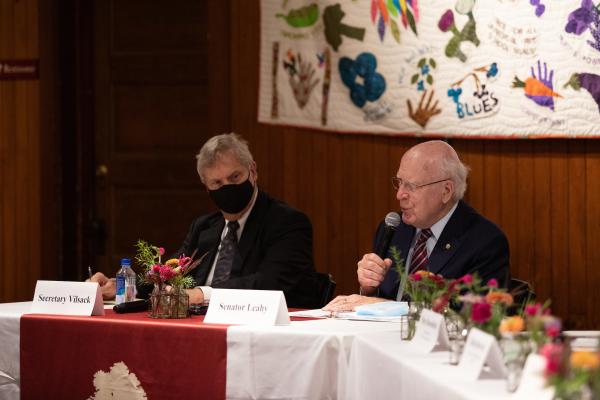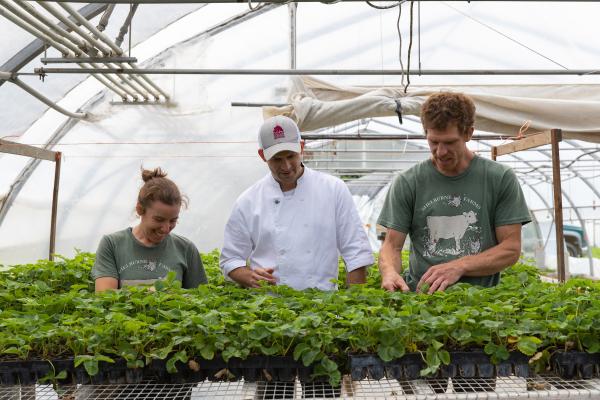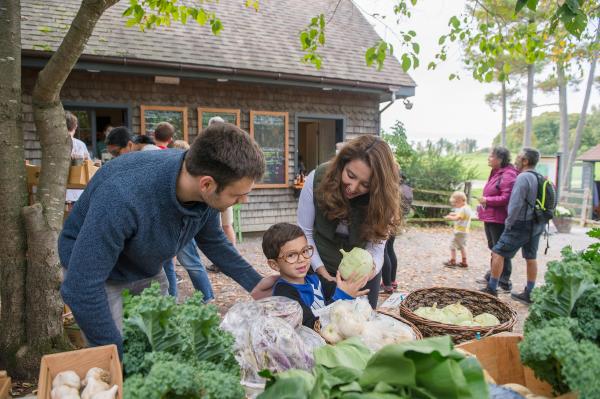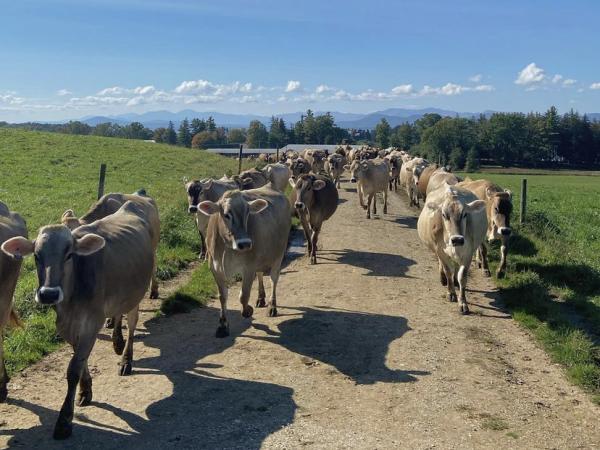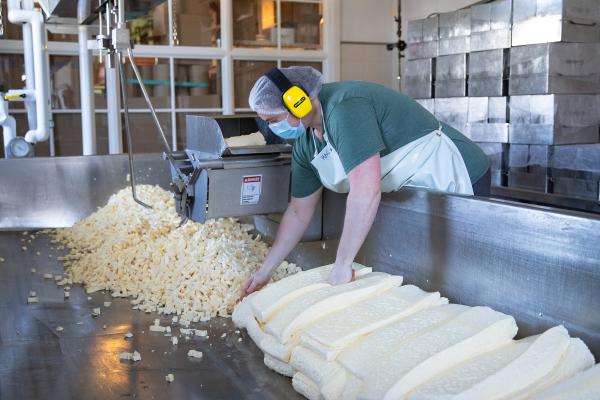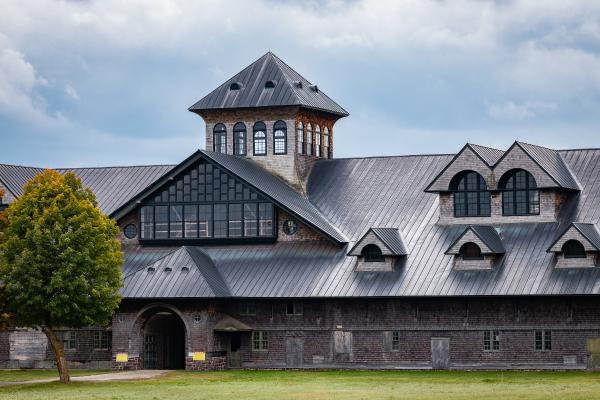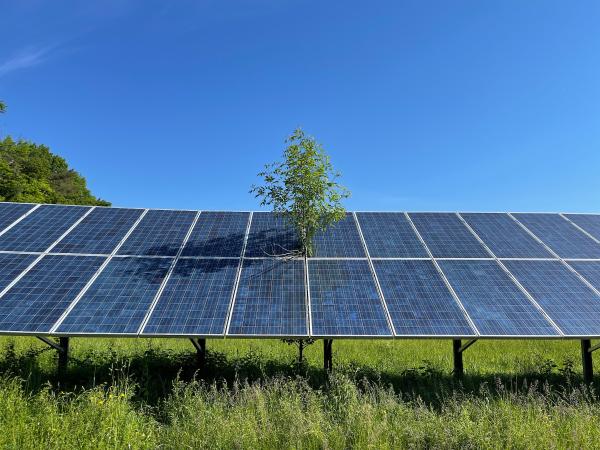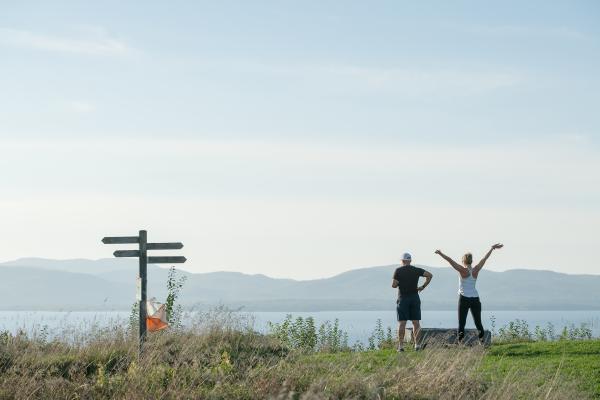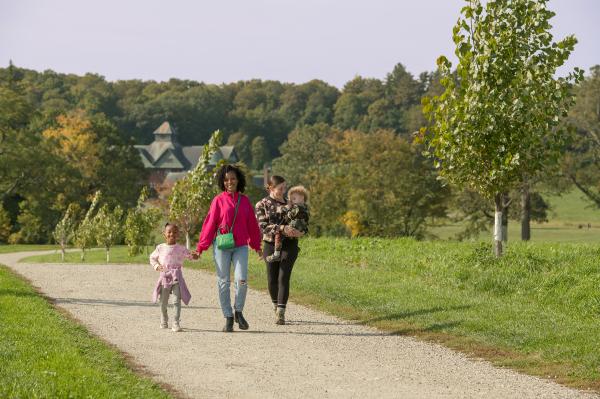This past year, Shelburne Farms navigated the ongoing disruption of Covid to emerge a stronger, more resilient nonprofit organization, innovatively serving students and educators around the globe, producing farm-fresh food for our community and beyond, and welcoming all to find respite and renewal on our campus for learning.
We served over 3,000 educators with primarily virtual programming, which helped broaden our reach and impact. (There were limited on campus activities in autumn.) Our focus–Education for Sustainability–encourages students to ask questions, acquire knowledge, and take actions to help create positive change in their communities and beyond. It’s a bold answer to the perennial question, “What is education for?” In late 2021, we formed the Institute for Sustainable Schools, a hub for our professional learning programming, and announced two innovative Education for Sustainability graduate certificate programs. Offered in collaboration with UVM, these new certificates open for enrollment in 2022. (Photo: Erica Houskeeper)
As the year progressed, we slowly reintroduced in-person, outdoor programming for learners of all ages. Our preschool Adventures program returned, hosted entirely in our outdoor classroom, and the farm came alive with Formal Garden tours for adults, evening campfires for families, a hosted picnic of the Vermont Fresh Network, and more. (Photo: Sarah Webb)
The year opened up new opportunities to serve students whose lives and learning have been most deeply impacted by the pandemic. Throughout the summer and fall, students and teachers from the Winooski school district and from the Burlington School District joined us for opportunities to explore our farm campus, slow down, and simply connect to the natural world. (Photo: Sarah Webb)
The work with students extended beyond our farm campus, too, as we shared food-, farm-, and forest-related programming through programs both local and virtual, including time with highschoolers of the Burlington City & Lake Semester program. We are very excited to also have launched a year-long, school-wide exploration of the UN Sustainable Development goals with the Middle School in Georgia, Vermont, in partnership with UP for Learning. This project-based learning opportunity is extending through the school year into 2022. (Photos: Burlington City & Lake) The need for universal access to healthy school meals has received heightened attention since the pandemic began. We used that spotlight to help further strengthen and advocate for healthy school meals sourced locally, working through Vermont FEED (Food Education Every Day), our partnership project with NOFA-VT, as well as other farm to school partnerships. This summer, U.S. Secretary of Agriculture Tom Vilsack and Vermont Senator Patrick Leahy shared their longtime support of these efforts in a visit and press conference at the Coach Barn. (Photo: Sarah Webb)
Our cheesemakers crafted all that fresh milk -- more than 1.4 million pounds -- into Shelburne Farms award-winning cheddar, for a total yield of just over 160,000 lbs of raw milk cheddar in 2021. (Photo: Sarah Webb)
Our solar panel arrays around the farm worked to convert the sun’s energy into renewable electricity, offsetting 75% of the electrical demands of our campus. (photo: Art Bell)
We are grateful to all of you who have supported and championed Shelburne Farms through another challenging year. Thanks to your support we can share and steward our historic working farm campus and inspire educators around the globe. (Photo: Daria Bishop)
We served over 3,000 educators with primarily virtual programming, which helped broaden our reach and impact. (There were limited on campus activities in autumn.) Our focus–Education for Sustainability–encourages students to ask questions, acquire knowledge, and take actions to help create positive change in their communities and beyond. It’s a bold answer to the perennial question, “What is education for?” In late 2021, we formed the Institute for Sustainable Schools, a hub for our professional learning programming, and announced two innovative Education for Sustainability graduate certificate programs. Offered in collaboration with UVM, these new certificates open for enrollment in 2022. (Photo: Erica Houskeeper)
As the year progressed, we slowly reintroduced in-person, outdoor programming for learners of all ages. Our preschool Adventures program returned, hosted entirely in our outdoor classroom, and the farm came alive with Formal Garden tours for adults, evening campfires for families, a hosted picnic of the Vermont Fresh Network, and more. (Photo: Sarah Webb)
The year opened up new opportunities to serve students whose lives and learning have been most deeply impacted by the pandemic. Throughout the summer and fall, students and teachers from the Winooski school district and from the Burlington School District joined us for opportunities to explore our farm campus, slow down, and simply connect to the natural world. (Photo: Sarah Webb)
The work with students extended beyond our farm campus, too, as we shared food-, farm-, and forest-related programming through programs both local and virtual, including time with highschoolers of the Burlington City & Lake Semester program. We are very excited to also have launched a year-long, school-wide exploration of the UN Sustainable Development goals with the Middle School in Georgia, Vermont, in partnership with UP for Learning. This project-based learning opportunity is extending through the school year into 2022. (Photos: Burlington City & Lake) The need for universal access to healthy school meals has received heightened attention since the pandemic began. We used that spotlight to help further strengthen and advocate for healthy school meals sourced locally, working through Vermont FEED (Food Education Every Day), our partnership project with NOFA-VT, as well as other farm to school partnerships. This summer, U.S. Secretary of Agriculture Tom Vilsack and Vermont Senator Patrick Leahy shared their longtime support of these efforts in a visit and press conference at the Coach Barn. (Photo: Sarah Webb)
Our Market Garden and dairy keep the “farm” in Shelburne Farms, and did so throughout 2021. Across seven acres, we produced organic vegetables, fruit, and flowers to share with our community. Much of it was transformed by our Inn chefs into prepared foods offered at our Farm Store, sold directly via the store, or contributed to local food banks. Healthy food depends on healthy soil, which our garden crew tends to with great care, within a regenerative agricultural system. (Photo: Sarah Webb)
Throughout the year, we loved having our farm-fresh food available to our community, as we collectively worked to build a more resilient local food system. (Photo: Daria Bishop)
Our cheesemakers crafted all that fresh milk -- more than 1.4 million pounds -- into Shelburne Farms award-winning cheddar, for a total yield of just over 160,000 lbs of raw milk cheddar in 2021. (Photo: Sarah Webb)
Maintaining and transforming our campus into a more powerful place of learning requires ongoing capital improvements. In 2021, we installed lightning protection on our most vulnerable buildings and restored the chimneys in a quiet Inn. We were also honored to receive a National Park Services Save America’s Treasures matching challenge grant to complete the exterior stabilization of the Breeding Barn, as a future gathering hall for educational, agricultural, and community events. (Photo: Jared Vincent)
Our solar panel arrays around the farm worked to convert the sun’s energy into renewable electricity, offsetting 75% of the electrical demands of our campus. (photo: Art Bell)
And, as they have throughout the pandemic, our trails offered respite and connection to the natural world. Thousands of visitors enjoyed exploring more than 10 miles of scenic walking trails through the working landscape of this National Historic Landmark. (Photo: Daria Bishop)
We are grateful to all of you who have supported and championed Shelburne Farms through another challenging year. Thanks to your support we can share and steward our historic working farm campus and inspire educators around the globe. (Photo: Daria Bishop)

